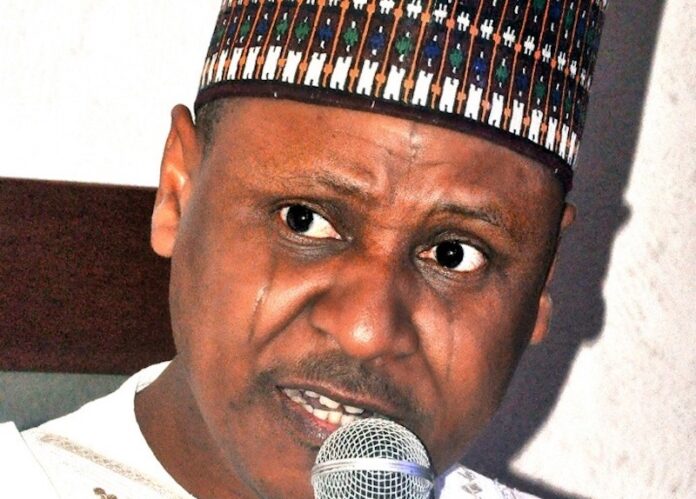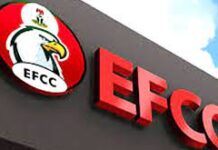•Says Tinubu, other government officials are in Dubai for serious business, not jamboree
•Obaseki: Why I decided to attend the conference virtually from Benin
Following the strong backlash against the large number of Nigerian officials attending the on-going Climate Summit in Dubai, United Arab Emirates (UAE), the presidency officially cleared the air, yesterday, saying the federal government only funded the trip of 422 delegates drawn from ministries, agencies and the National Assembly.
Minister of Information and National Orientation, Mohammed Idris, made the clarification in a statement, titled, “Re: Nigeria at COP28.”
Idris gave a breakdown of the delegates to include 32 from National Council on Climate Change; 34 from Federal Ministry of Environment; all other ministries – 167; Presidency – 67; Office of the Vice President – nine; National Assembly – 40; and Federal Parastatals/Agencies – 73.
The minister pointed out that the overall Nigerian delegation to COP28 comprised government-sponsored (federal and state governments) and non-government-sponsored participants (from private companies, non-governmental organisations (NGOs), civil society organisations (CSOs), media, academia, etc.).
He said parties to the COP28 convention from Nigeria included government officials, representatives from the private sector, civil society, the voluntary sector, state governments, media, multilateral institutions, representatives of marginalised communities, and many others.
The minister further justified the large federal government delegation, stressing that as the biggest economy and most populous country in Africa, with a substantial extractive economy and extensive vulnerability to climate change, “Nigeria has a significant stake in climate action, and our active and robust participation at COP is, therefore, not unwarranted.”
Idris also listed the gains of the COP28 summit to Nigeria to include signing of accelerated energy performance agreement between Nigeria and Germany, unveiling the Nigeria Carbon Market Activation Plan by President Bola Tinubu, and the president’s hosting of stakeholders and investors on the Nigeria Carbon Market and Electric Buses Rollout Programme.
The minister further explained, “The federal government has noted with interest the public conversation on the number of delegates from Nigeria attending the ongoing Climate Summit in Dubai, otherwise called COP28, and the need to provide clarity in line with a standing pledge to conduct itself with transparency and accessibility regarding public information.
“The Convention of Parties (COP) to the United Nations Framework Convention on Climate Change (UNFCCC) is the world’s pre-eminent Climate Change Conference, attended this year (COP28) by more than 70,000 participants and delegates from over 100 countries.
“Nigeria’s representation is very much in line with our status as Africa’s leading sovereign voice and player in climate action.
“Parties to this convention from Nigeria include government officials, representatives from the private sector, civil society, the voluntary sector, state governments, media, multilateral institutions, representatives of marginalised communities, and many others.
“It is imperative to point out that the overall Nigerian delegation to COP28 comprises government-sponsored (federal and state governments) and non-government-sponsored participants (from private companies, NGOs, CSOs, media, academia, etc.).
“The federal government-funded delegation is made up of a total of 422 persons, as follows: National Council on Climate Change – 32; Federal Ministry of Environment – 34; All Ministries – 167; Presidency – 67; Office of the Vice President – nine; National Assembly – 40; federal parastatals/agencies – 73.”
According to the minister, COP28 presents an array of investment and partnership opportunities for the various sectors affected by climate change.
He stressed that Nigeria was already benefiting from its participation, as demonstrated by the following, “Nigeria and Germany signed an accelerated performance agreement to expedite the implementation of the Presidential Power Initiative (PPI) to improve Nigeria’s electricity supply.
“The agreement was signed by Mr. Kenny Anuwe, the Managing Director and CEO of FGN Power Company, and Ms. Nadja Haakansson, Siemens Energy’s Senior Vice President and Managing Director for Africa, at a ceremony witnessed by President Tinubu and Chancellor Scholz.
“President Tinubu hosted a high-level meeting with stakeholders and investors on the Nigeria Carbon Market and the Electric Buses Rollout Programme on the margins of the COP28 climate summit.
“The president unveiled the Nigeria Carbon Market Activation Plan, co-chaired by the Executive Chairman of the Federal Inland Revenue Service (FIRS), Mr. Zacch Adedeji, and the Director-General of the National Council on Climate Change (NCCC), Dr. Dahiru Salisu.
“The electric buses programme is only the first step in a series of innovative, clean, modern, and sustainable initiatives across diverse sectors, all aimed at simultaneously addressing climate change-related challenges, reducing carbon footprint, modernising infrastructure systems, and positioning Nigeria as an attractive destination for global investments.
“Nigeria stands to benefit from the Loss and Damage Fund established during COP27 in Egypt and formally operationalised at the opening plenary of COP28 in Dubai.
“The fund will provide substantial non-debt financing to support countries most affected by the impact of climate change. Hundreds of millions of dollars have already been pledged as contributions to the Fund.
“The president also met the president of UAE to concretise engagements between the two countries. This is aside from the bilateral talks held with several countries and multilateral partners.
“It should be highlighted that over the years, Nigeria has firmly demonstrated its climate action credentials by being the first African country to launch its Energy Transition Plan, the first African country to issue a Sovereign Green Bond, and one of the first to pass national climate change legislation.”
Idris added, in the statement, “President Tinubu has been unequivocal in his position that Africa, which is battling problems of poverty and security and struggling to provide education and healthcare to her people, cannot be told to abandon its primary source of income, which is mostly from extractive industries, without the West providing the funding and investment in alternative and clean energy sources.
“Since assuming office, President Tinubu has been a vocal champion for the African continent on the global stage, whether at the United Nations General Assembly (UNGA), the G20, or the ongoing COP28. The president has been supported by an equally active and engaged Nigerian delegation at these various fora.
“It is, therefore, essential to keep setting the records straight while assuring Nigerians that President Tinubu and other officials on the federal government delegation are in Dubai for serious business, not a jamboree.”
Meanwhile, Edo State Governor, Mr. Godwin Obaseki, yesterday, said he was invited to COP28, but he opted to join the conference virtually on account of the reforms initiated to develop the state’s digital economy.
A statement quoted Obaseki to have made the remarks in a chat with BBC Pidgin.
The governor, who listed the achievements recorded in the last seven years of his administration, stated that the state had since transitioned to paperless work mode that had made working in Edo civil and public service flexible, better and more productive.
Obaseki stated, “I was invited to attend the COP28 in Dubai, but I told them I am going to join them virtual.
“We have a lot to showcase in the state as regards climate change. We are tackling deforestation, planting trees and preserving our land. Illegal tree logging is causing erosion in the state and we are determined to end the trend. It is still raining in December; there is climate change and we are working to protect our people.”
Obaseki said the state was massively investing in the digital economy, especially with investment in digital infrastructure and manpower development.
He said, “In terms of technology, we have trained six cohorts of 100 students each on software engineering. Some of them are working for blue-chip companies from Edo here.
“We have deployed 2,000 kilometres of fibre optic cable infrastructure across the state’s 18 local government areas. That is why we are able to go fully paperless in the state’s civil and public service.”

























